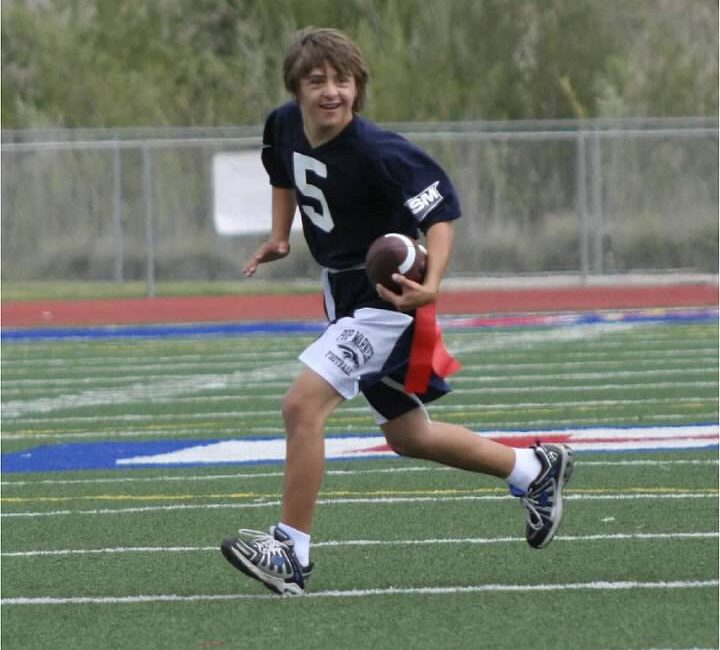“The students had so much more character than some of the teachers over the years, and stood up over and over because they had been in school with Sean all those years.” – Sandra McElwee, Episode 7
That quote has stayed with me since Sandra and I did this interview months ago. Because it is profound. Because it is so sad. And mainly because I know it is true in many places across our country – today.
Character: mental and ethical traits marking and often individualizing a person, group, or nation.
Let’s look at the world today. Mass shootings almost daily. Political systems and democracies being tested by zealots here, and around the world. People glued to their phones and devices, to the detriment of real relationships. Youth who are concerned about the health of our planet and climate. I could go on and on….but you see the point. We live in a world that could sure use a supercharged influx of character—good character.
If we could scientifically see the beauty inside the hearts, minds, and souls of many people with significant disabilities – we’d have teams of specialists studying them. Because many of these individuals have the character, and happiness that eludes most of us.
“No significant learning happens without significant relationships.” This is true from so many angles. Let me give one example.
Fifth grade, the first month of school. A student is sitting by herself day after day at lunch. Her parent notices this one day while visiting the school. Her heart breaks. She mentions this to the teachers in the co-taught class, who are back in their classroom eating and working. She wants to do more, but she likes these young teachers and trusts them. She leaves, praying.
That same week this teaching team gives the class a writing assignment. They are to write about an experience that was hard for them. They then get up one by one and read what they wrote to the class. One by one students read their essays. The girl who had been sitting alone is shy. She has Down syndrome. Writing is her toughest subject. She gets up and clearly tells the class that she sits alone at lunch every day, and it makes her sad. The whole class is shocked. They do not realize they had isolated her. They all run up to her, tell her they are sorry, and give her many class hugs. She never sits alone again, and has wonderful friends. She has her best academic year to that date, passing benchmarks and a difficult end of the year standardized test.
That student is now thriving in high school. And she is my youngest daughter.
What her incredible teachers did was what teachers who know how to build communities do. They did not lecture the class. They let the class peel off their layers to each other, and organically bond. They let the students build each other up, and in turn watched everyone’s confidence grow. That was my daughter’s magical year. That year was based on significant relationships between the teachers and their students, the students with each other, and the teachers with all parents. (They attended several extra – curricular activities for each student, to get to know them outside of school.) That was the year that prepared my daughter for successful fully inclusive middle and high school experiences.
Think about the characters of the students in that example. I can tell you that six years later the students in my daughter’s various classes, who do and do not have disabilities, have grown into fine young men and women. The kind of youth that give me hope for our world’s future. I can also tell you that my daughter is strong, kind, and carries a quiet confidence that her inclusive education has instilled in her. Think about the character of the students in the various examples Sandra shares. They showed their hearts. They are now in their mid twenties, and becoming the new generation of citizens and professionals this world needs. And think about Sean–who is strong, kind, uplifting, and resilient. These lessons / characters have to be built organically. You can’t ‘teach’ that.
And it only happens in truly inclusive experiences. Otherwise people are seen as separate—or ‘other’. Often people seen as ‘other’ are misjudged, feared, or ignored. Tim Shriver has a haunting quote. He says people with disabilities are the world’s most forgotten minority. He is correct.
We can choose to right that wrong today. We can choose to make this a kinder and gentler world today. We can make a difference that will change generations – for the better. All we need to do is start including all students, from the time they are very young, with their peers. In schools, places of worship, and in all aspects of life.
Let’s unite, and work together, today.
Thank you for caring.
From my heart,
Greta Harrison
- Thank you to Sandra McElwee for sharing her experiences, and Sean’s stories.
- Thank you to Mrs. Meghan Ellis and Mrs. Jennifer Dranoff for changing my daughter’s trajectory, and my life, that magical year.
If you have not heard episodes 1-7, you can go to the link at the bottom of this page and it will lead you to the episodes. Or go to www.bornfabulouspodcast.com. The podcast is also on iTunes, Alexa, or any podcast directory. I invite you to subscribe on those podcast directories. Born Fabulous also has Facebook, Instagram, and Twitter pages as well as a YouTube Channel.



